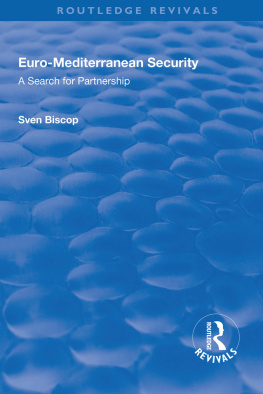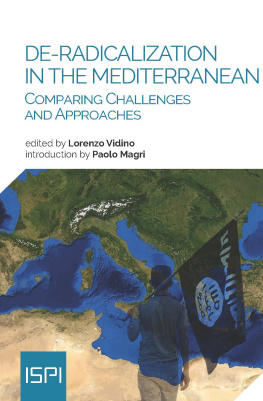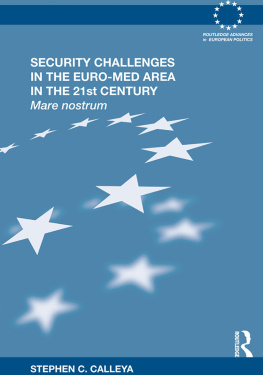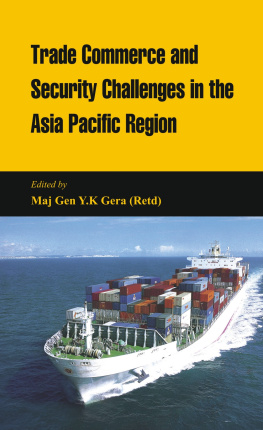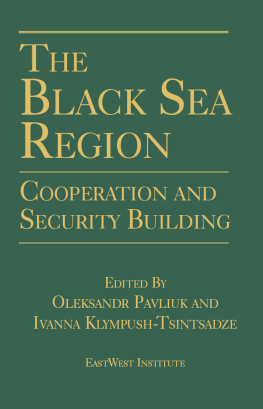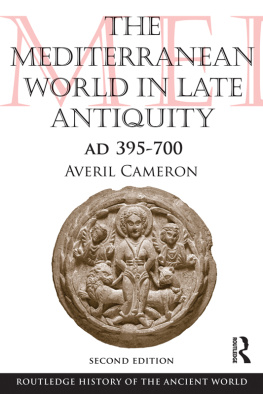Roberto Aliboni - Security Challenges in the Mediterranean Region
Here you can read online Roberto Aliboni - Security Challenges in the Mediterranean Region full text of the book (entire story) in english for free. Download pdf and epub, get meaning, cover and reviews about this ebook. year: 2013, publisher: Taylor and Francis, genre: Politics. Description of the work, (preface) as well as reviews are available. Best literature library LitArk.com created for fans of good reading and offers a wide selection of genres:
Romance novel
Science fiction
Adventure
Detective
Science
History
Home and family
Prose
Art
Politics
Computer
Non-fiction
Religion
Business
Children
Humor
Choose a favorite category and find really read worthwhile books. Enjoy immersion in the world of imagination, feel the emotions of the characters or learn something new for yourself, make an fascinating discovery.

- Book:Security Challenges in the Mediterranean Region
- Author:
- Publisher:Taylor and Francis
- Genre:
- Year:2013
- Rating:5 / 5
- Favourites:Add to favourites
- Your mark:
- 100
- 1
- 2
- 3
- 4
- 5
Security Challenges in the Mediterranean Region: summary, description and annotation
We offer to read an annotation, description, summary or preface (depends on what the author of the book "Security Challenges in the Mediterranean Region" wrote himself). If you haven't found the necessary information about the book — write in the comments, we will try to find it.
Security Challenges in the Mediterranean Region — read online for free the complete book (whole text) full work
Below is the text of the book, divided by pages. System saving the place of the last page read, allows you to conveniently read the book "Security Challenges in the Mediterranean Region" online for free, without having to search again every time where you left off. Put a bookmark, and you can go to the page where you finished reading at any time.
Font size:
Interval:
Bookmark:

IN THE
MEDITERRANEAN REGION
ROBERTO ALIBONI
GEORGE JOFF
TIM NIBLOCK

FRANK CASS & Co. LTD
2 Park Square, Milton Park, Abingdon,
Oxon, OX14 4RN
FRANKCASS
270 Madison Ave,
New York NY 10016
116091638
Gabriele Tonne
Roberto Aliboni |
Michael Willis |
Saad Eddin Ibrahim |
| SECURITY AND CO-OPERATION IN THE MEDITERRANEAN: A SOUTHERN VIEWPOINT Abdelwahab Biad |
| The Interrelation of Security and Development in the Mediterranean |
| COLLECTIVE POLITICAL CO-OPERATION IN THE MEDITERRANEAN Roberto Aliboni |
| Issues and Challenges Related to Mediterranean Political Co-operation |
| Goals and Features of Mediterranean Political Co-operation |
| MEDITERRANEAN SECURITY: THE TUNISIAN VIEWPOINT Khalifa Chater |
| ECONOMIC CO-OPERATION AMONG SOUTHERN MEDITERRANEAN COUNTRIES Michel Chatelus |
| NewPerspectives and Conditions for Regional Co-operation in the Political Context of the 1990s |
| NORTH-SOUTH SOCIO- ECONOMIC RELATIONS IN THE MEDITERRANEAN Tim Niblock |
| The Imbalance in the Economic Relationship: Security Implications |
| The Shaping of the Community's Relations with Non-EC Mediterranean Countries: the 1960s to the 1990s |
| PART THREE: MILITARY CHALLENGES AND TERRORISM |
George Joff |
| ARMS AND SECURITY IN THE MEDITERRANEAN REGION Jed C. Snyder |
| SECURITY CHALLENGES IN THE MEDITERRANEAN REGION Sergio Balanzino |
Font size:
Interval:
Bookmark:
Similar books «Security Challenges in the Mediterranean Region»
Look at similar books to Security Challenges in the Mediterranean Region. We have selected literature similar in name and meaning in the hope of providing readers with more options to find new, interesting, not yet read works.
Discussion, reviews of the book Security Challenges in the Mediterranean Region and just readers' own opinions. Leave your comments, write what you think about the work, its meaning or the main characters. Specify what exactly you liked and what you didn't like, and why you think so.


